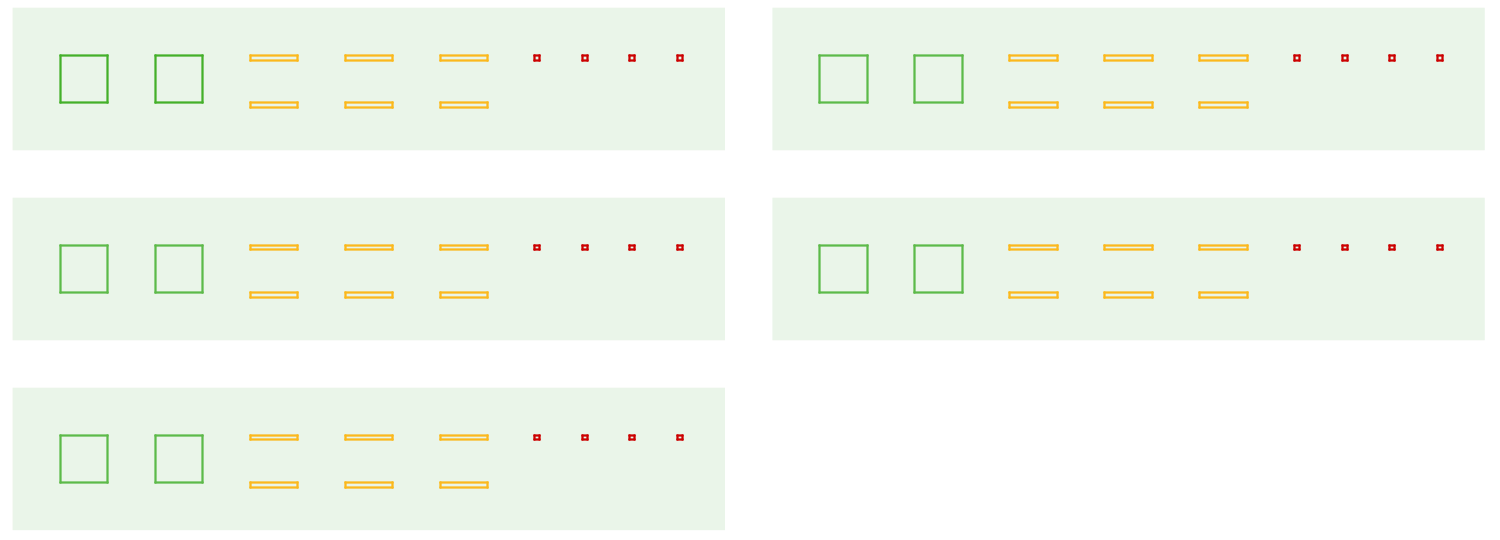Lesson 12
Dividing Decimals by Whole Numbers
Let’s divide decimals by whole numbers.
Problem 1
Here is a diagram representing a base-ten number. The large rectangle represents a unit that is 10 times the value of the square. The square represents a unit that is 10 times the value of the small rectangle.

Here is a diagram showing the number being divided into 5 equal groups.

-
If a large rectangle represents 1,000, what division problem did the second diagram show? What is its answer?
-
If a large rectangle represents 100, what division problem did the second diagram show? What is its answer?
-
If a large rectangle represents 10, what division problem did the second diagram show? What is its answer?
Problem 2
-
Explain why all of these expressions have the same value.
\(4.5 \div 0.09\)
\(45 \div 0.9\)
\(450 \div 9\)
\(4500\div 90\)
-
What is the common value?
Problem 3
Use long division to find each quotient.
- \(7.89 \div 2\)
- \(39.54 \div 3\)
- \(0.176 \div 5\)
Problem 4
Four students set up a lemonade stand. At the end of the day, their profit is $17.52. How much money do they each have when the profit is split equally? Show or explain your reasoning.
Problem 5
- A standard sheet of paper in the United States is 11 inches long and 8.5 inches wide. Each inch is 2.54 centimeters. How long and wide is a standard sheet of paper in centimeters?
- A standard sheet of paper in Europe is 21.0 cm wide and 29.7 cm long. Which has the greater area, the standard sheet of paper in the United States or the standard sheet of paper in Europe? Explain your reasoning.